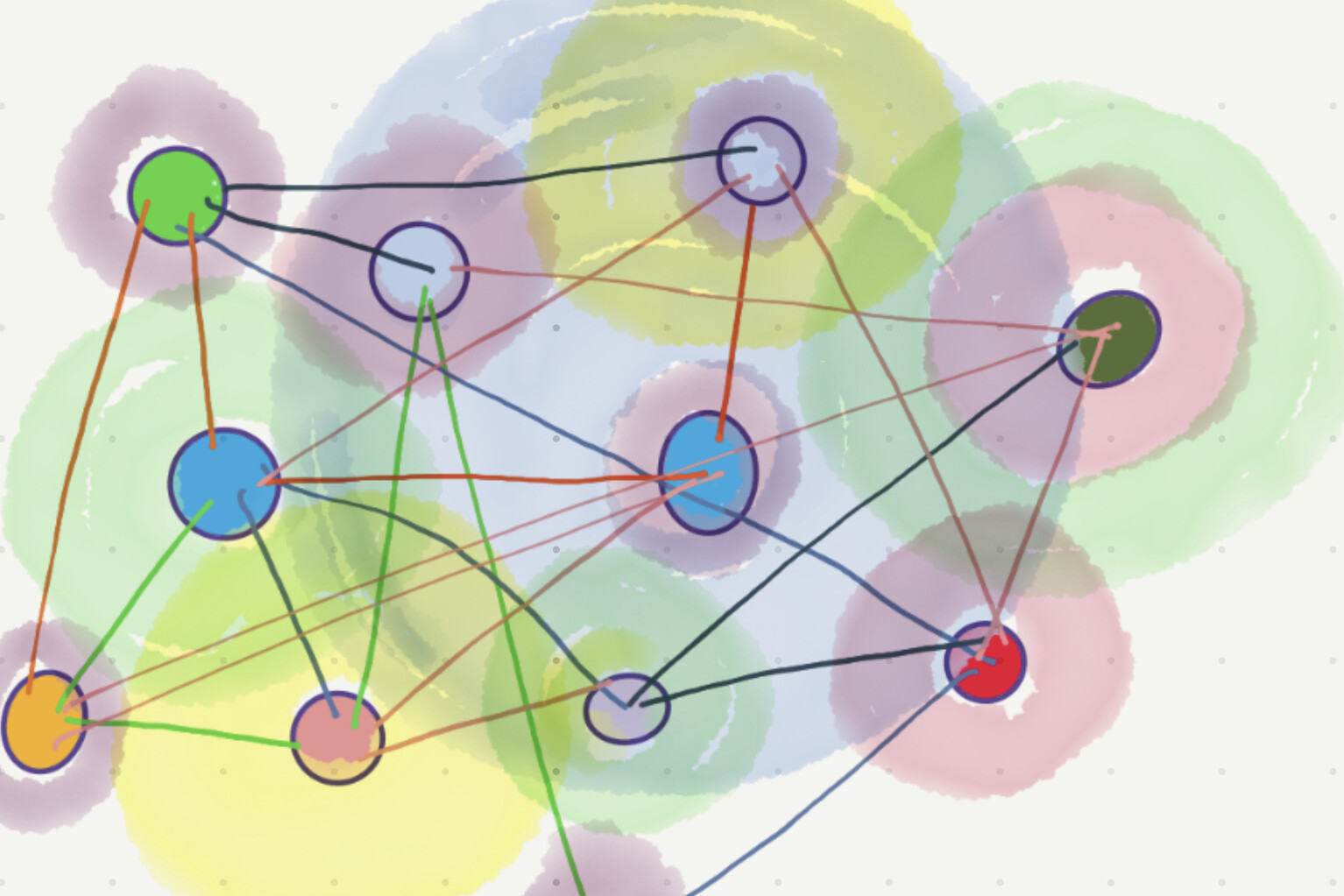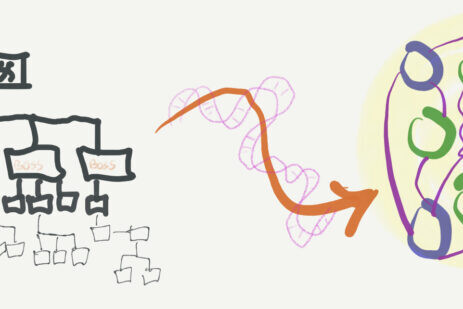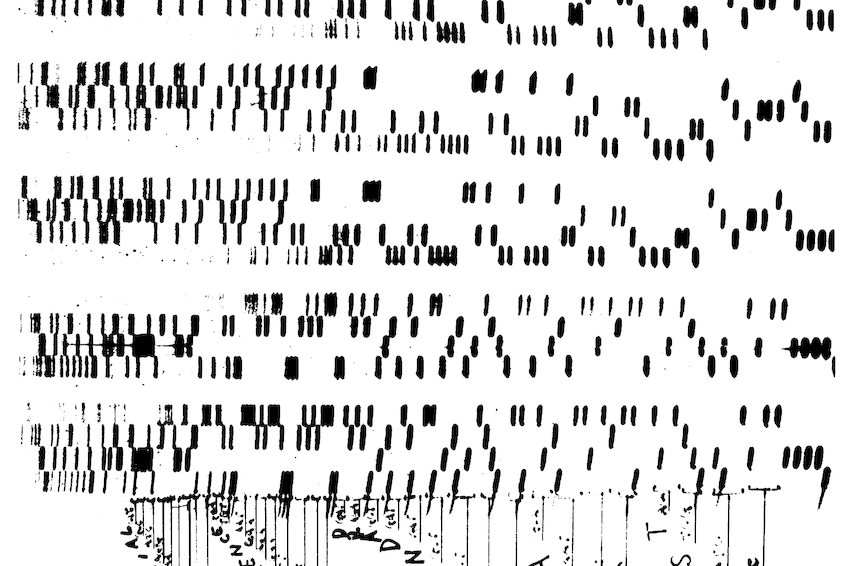Ordered complexity
Note : Do not freak out if you read this and are knowledgeable in system theory of complexity frameworks… I made this up to explain a point.
Reading time : Approximately 10 minutes
We all know about the complexity of any health system.
Several books have been written on the subject (I really loved this one by Henry Mintzberg, a hero of mine) and many consultants and government agencies did their best to make those huge systems work.
But … Each time we look at the results and wonder: how can they be so wrong?
I recently tried (yes … tried) to get an appointment for a routine health check. I have had issues with my blood pressure and my thyroid gland in the last few years and those, unattended to, can get a healthy individual in a vegetative state pretty fast. No energy, no concentration, being out of breath or red in the face and basically feeling … well … Unhealthy!
Mind you, I am approaching 60. Still a young man by many standards but not, by far, blind enough to think that I will survive this condition for many years.
Yes, yes …
I do some exercises and do not drink too much alcohol (although chips are a killer) and yes, yes, the pandemic has not been kind… COVID, Netflix, chips and a beer a day will transform any Adonis into a coach potato.
No, no,
I am not saying I was an Adonis but the end result is similar: whose sagging belly is this anyway?
So here I was, trying to get an appointment a few months after my family doctor resigned from the clinic he had been working for since 2017. Goodbye doctor, please register on the waiting list to get a new one because my clinic cannot simply get me another one … waiting time for a new doctor …2 to 3 years !
I live in Quebec, Canada. Health care is free. Oh we pay dearly for it with our income taxes but we never worry about being bankrupt when we need health care. Lately, however, we have started to worry about something else, not the cost but the delivery: we will be taken care of when the need arises? Going to the emergency room require a camping kit: food and water for 2 days, a pillow and a few books ah yes … and a phone charger/cable.
No kidding.
The average waiting time to see a doctor when you go to the emergency in Quebec is between 18 and 36 hours. Unless you are literally dying (e.g., a heart attack or respiratory distress) you’d better be patient. Isn’t it why we are called “patients” when dealing with a doctor?
A routine visit to a doctor is now also quite an adventure.
The adventure of the guy who tried to get an appointment!
First I called the clinic I have been going to for the last 30 years. Nope. No way José! I am told to call the new 811 phone line.
OK. Then here we go 811, option 3.
Twenty-minute wait. Then a few questions
What’s my problem? What do I need?
I summarized briefly.
Are you registered for the waiting list to get a family doctor ?
Well, yes, for over a year now…
OK, then you are allowed to get an appointment. We will call you back. Goodbye.
Say what?
I am “allowed” to get an appointment because I registered on the waiting list? Oh, what if I had not registered? I would have to go to the “no appointment” process, a tedious process, to say the least, that requires to be online at exactly 7:45 (not 7:44) and punch in your name and health system number rapidly. A five-minute window is available to get an appointment on the same day. Past those 5 minutes, the schedule for the day is full … good luck tomorrow.
So… Should I be grateful to be “allowed” to get an appointment?
I was stunned.
- I received a phone call 3 hours later. More specific questions about my condition. I am then told that this appointment is for ONE thing, and ONE thing only. I wanted :
- A blood test for my thyroid gland (a normal yearly test since I do not have a stable THS level yet)
- A blood test for creatinine because my blood pressure medication could affect my kidney … another yearly test.
- A normal follow-up for the statin I have been taking for a year … should I continue, lower or increase the dose? Is my cholesterol level ok or not? Looking at the potential side-effects is worrying! On top of this, the side effects include sleep problem, muscle pain and general fatigue…yep I could see this… Ah yes, being a 60-year-old male with a kidney stone I usually require a check of to make sure my protostar is still at the right place and of the right size, a PSA test and an X-ray.
But no.
I will see a doctor (yep, they want me to “see” a doctor, a phone call would not work …. good gracious…!) for ONE thing.
ONE thing.
And you have a choice of talking about this ONE thing OR get a new prescription for ONE medication.
- Doctors do not do routine check any more.
- Doctors do not do follow-ups anymore…they prescribe drugs with side-effects but do not follow-up …great!!
- Doctors are busy you know….
- A nurse will call you in a few days to make the appointment…
WHAT?
I am not there yet?
And…” doctors are busy and do not do follow-up examinations”?
WHAT???
I am getting upset … I am getting ready to repeat the process 5 times, ONE thing at a time, just to screw the system!!
At least, a new regulation in Quebec allows pharmacists to write a prescription for a blood test in the case of chronic conditions (thyroid, blood pressure and cholesterol being some of them) so I was lucky to get a prescription for a blood test directly instead of praying for a doctor appointment.
But still … what is this?
This is complexity!
Adding layer upon layer of stupid steps instead of actually solving the complex situation that is a health problem.
“Simple, clear purpose and principles
give rise to complex intelligent behaviours.
Complex rules and regulations
give rise to simple stupid behaviours.”
Dee Hock
But then 3 days later a real nurse called me. The questions were relevant and to the point. She understood that the medications I was taking all had an impact on my blood pressure and were in fact pointing to ONE situation. I did not even talked about my muscle pain, fatigue or sleep problems. She suggested, if I agreed (the tone and tactfulness of this nurse were quite a difference with respect to the first two persons I talked to!) to wait for my test results before seeing a doctor.
Ah … common sense.
Finally.
I have yet to see a doctor but suddenly I understand.
This is ordered and complicated complexity!
Adding layer upon layer of stupid and simple steps instead of actually solving the complex situation with somebody who is willing to listen and not simply checking the multiple boxes required by the all-powerful bureaucratic forms.
Once again a proof of this famous quote :
For every complex problem,
there is an answer that is clear, simple,
and wrong.
H. L. Mencken
This is really what most governments are good at : dumbing down complex situations to simple and stupid behaviours.
The energy required to put this system in place is tremendous!
- Create a special commission or work group to study the “problems” in a silo.
- Design simple processes (forget to validate them, however … this is too long!)
- Get approval to start implementation (12 months later)
- Printing all those new forms (yeah, print … forget about electronic forms or signature..I am not kidding…you should see the antiquated hospital cards embossing devices…with an expiry date on the embossed plastic card!!!)
- Imposing the new processes with little training but an ironclad process in case of deviation
- Implementing a new metric … because we have to show that there is an improvement!
- Hire staff to write reports for this new metric
- Hire staff or spend a lot of time convincing the media and the population that it will work this time.
- Do damage control when it doesn’t.
- Repeat steps 1-9 yearly or at least start talking about repairing it … after election day…simply trust us, we will do something IF we get elected!
Then, after realizing (no one could see this coming!) that costs are up, hospitalizations are up, doctors are too busy filling forms, nurse retire before the retirement age, everybody is burnt out, recruiting is becoming a nightmare, etc. … let’s go back to the drawing board with a new minister who will save us all.
After election day. (am I being to cynical?)
Ordered and simplified complexity.
First a series of very simple questions and processes (line 811) to categorize the needs briefly (but sometimes erroneously) : check the boxes!
- Registered on the waiting list ? ✔︎
- Another person will call you in a few hours.
- Follow-up ?✔︎
- You cannot have an appointment!
- Routine exam? ✔︎
- You cannot have an appointment! Go to the “No-+appointment” process tomorrow morning.
- Multiple problems ✔︎
- You have to choose which problem you will need care for
- You have too many questions ? ✔︎
- Another person will call you in a few hours.
- You seem in a hurry? ✔︎
- Go to the emergency…bring your camping kit.
Very ordered.
It might work in very simple cases. It might create havoc or severe health problems in more complex cases.
And complicated complexity.
When the nurse finally talked to me , she analyzed my situation specifically. Not pre-specified questions, very personalized questions and she could then decide to act in several different ways. Her expert analysis sifted through the whole spectrum of health problem in a humane way and 5 minutes were enough to
- Decide what the next step should be
- Stop my distressed mood in its track
- Rekindle my confidence in our health system…a bit.
What we are currently seeing, what our government seem very intent on doing is uselessly complicating what should be accepted: this is a health “system.” It interacts with other systems and does not need anything else than enabling constraints (budget, authority/autonomy and accountability), not strict processes and rules…
and trust, complete trust , almost faith, in the actors of the system.
Doctors and nurses know how to treat patients.
Politicians don’t.
They need support staff to help them treat patients.
Not bureaucrats.
Budget-wise, they understand that a healthy patient costs less than a sick patient, that a well cared for patient does not come back as fast as a mistreated one!
Apparently accountants do not.
Having a long-term view about prevention and health care (not disease care) will prevail … if we let them do the job.
That is a big, a huge IF.
More knowledgeable authors and academics have written volumes about this. This is not my goal to solve the problems we face today in a short blog post. That would be an epitome of preposterousness.
I write today because I am upset.
I can only imagine how I would have fared with this complicated process had I been 85 years old and a bit senile (as we we all be eventually!). It is not a big stretch of imagination … I would have abandoned, I would have kept my usual medications and I might have died. It is certainly one way to keep the costs down…oh, the acidic cynic in me!!
I am upset.
Very upset.
The nurse who finally talked to me will call me back with my results. I am convinced this conversation will be gentle, humane and very efficient.
Complexity is simple after all.. althouhg it might sound dychotomic.
Let the pedestrian trace their path in the ground … then pour concrete on top of the path in the park.
Let the nurses do their job first … Buurtzorg demonstrated that autonomous teams of health care workers will do wonders to improve the health of their patients. More than any algorithm imposed but any government.
Use technology to assist doctors, facilitate follow up, instead of imposing face to face visit with potentially contaminated patients…
Use common sense to speed up triage at the emergency room and relocate non-urgent patients to secondary resources
Stop pressuring hospital managers with stupid and insignificant metrics..if more than 100% of emergency beds are occupied it means we have too many sick people requiring care now…moving them to different department to lower the number of emergency beds does not change anything (except maybe the results shown to the media and some managers’ performance bonuses…ah…do not start me on this!!!)
Allow nurses and other health care professionals to take decisions like prescribing a X-ray or a blood test so that the doctors could diagnose the situation more rapidly.
Solutions exist.
But they cannot, must never, come from the top! Complexity and system dynamics remain a mystery to our decision makers because they insist on controlling everything.
Complexity has to be accepted before we start dealing with it the right way.
Complexity management requires collaboration and interactions between the stakeholders!
And humility … a rare quality in our typical charismatic leaders.
Those leaders who seem intent in not learning the lessons that COVID taught us brutally in 2020: surprise! You are not ready!!! 3 years later we can confirm … the next pandemic will find us with our pants down … again! Because they are still figuring out how to write rules about it instead of learning from it!
…
Ah well I also need to get my prostate checked.
I called my urologist, the one who has been on my case for decades now.
“Welcome to our hospital! Replied the automated system, to contact a specialist, press 3
If you are referred here by a specialist, press 1,
By a generalist press 2
Send your signed referral by fax to +192.657.667.8585 (do not dial!) for an appointment ( not, they never repeat the fax number!)…
Hey, a fax??
But, but, my urologist told me to call when I needed an appointment , he never wrote anything down…wait … wait … Where can I…
“Goodbye.”
Why am I suddenly thinking about permit A38 ? ( watch from minute 42:00…but the whole thing is worth it if you have never watched it)
Complicated complexity.
Misère…
Once again, most of this was inspired by a true story and the Cynefyn framework.
Voluntary contribution
The blog is free but…
If this article has touched you, changed your mind or perspective, or expanded your mind… remember that free content on the web comes at a cost to the content creator.
Thank you in advance for your contribution.
Thank you in advance for your possible contribution.
Subscribe to this blog and don’t miss a single post!
Send the hyperlink of this article to a friend or colleague who could benefit from it; do not copy the content in an email.
Share this article on your favorite social network! You can’t imagine the impact on the visibility of my site!
Please do not photocopy without asking permission from the author… flavallee@aliterconcept.com… that’s me!
ARTICLES RÉCENTS
1 février 2024
Hybride? Faites-moi confiance!
Hybride? Faites-moi confiance! Retour en 1998 : Oui ça m’intéresse. Beaucoup. J’ai quelques…




